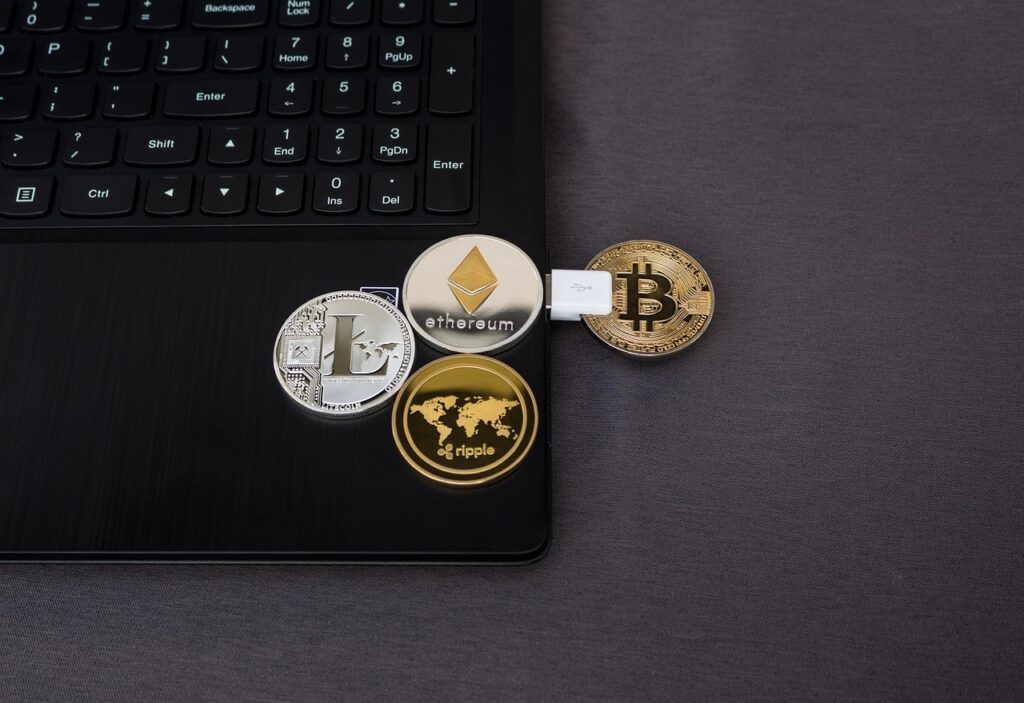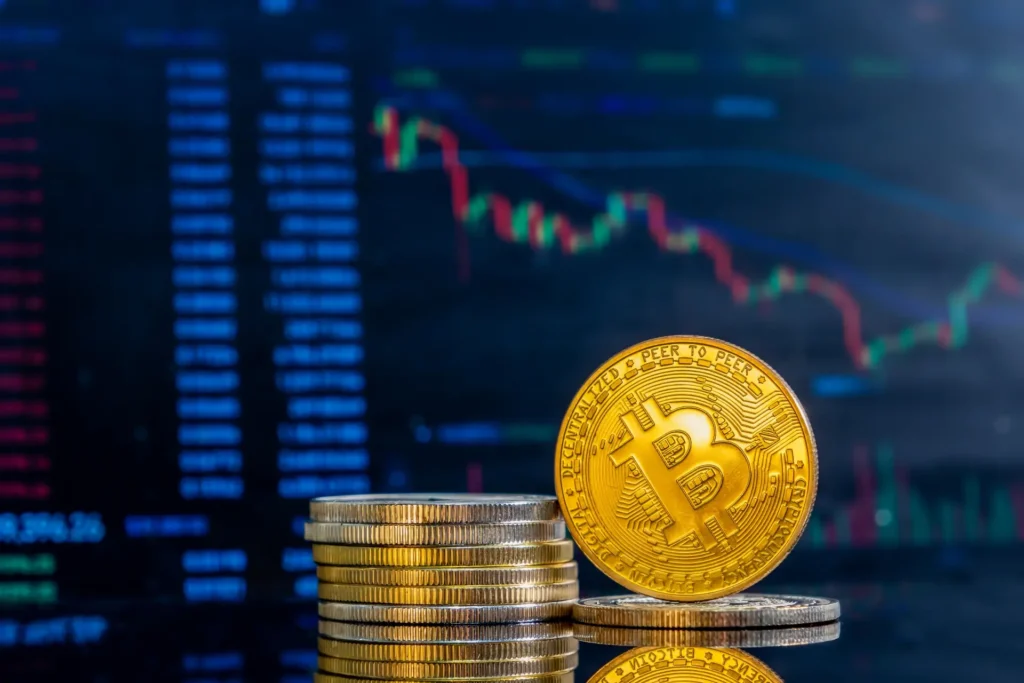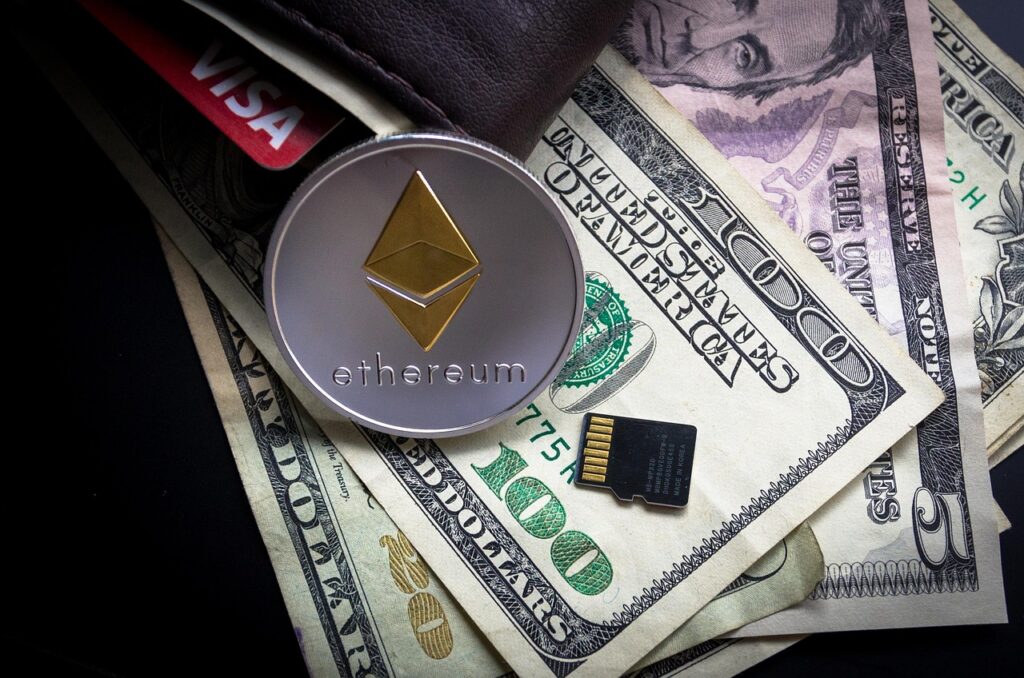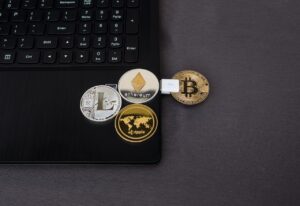Understanding the age requirements for buying cryptocurrency can be a bit confusing. It’s not always as straightforward as you might think. While owning crypto doesn’t have a strict age limit, actually buying it through common channels often does. This article will explain how old you need to be to buy crypto legally, looking at the rules and some ways younger people can get involved with proper guidance.
Table of Contents
- 1 Key Takeaways
- 2 Legal Age to Buy Cryptocurrency
- 3 Why 18 Is the Standard Minimum Age at Crypto Exchanges
- 4 United States & Canada: 18 Is the Typical Crypto Age Limit
- 5 United Kingdom and EU: Age of Majority and Crypto Rules
- 6 Age of Majority as a Baseline
- 7 KYC and AML Regulations
- 8 Variations and Nuances
- 9 Parental or Guardian Control
- 10 Other Countries: When the Age Requirement May Be Higher
- 11 Legal vs Practical: No Outright Ban on Minors Owning Crypto
- 12 Custodial Accounts: How Minors Can Gain Crypto Exposure
- 13 Peer-to-Peer Transactions & DEXs: Age Limit Loopholes
- 14 Why Age Verification Is Crucial: KYC, AML & Regulatory Compliance
- 15 KYC: Knowing Your Customer
- 16 AML: Anti-Money Laundering
- 17 Regulatory Demands
- 18 Risks of Underage Crypto Investing: Volatility and Scams
- 19 Guidance for Teens: Learn First, Invest Later with Parental Help
- 20 Parental Involvement: A Safer Approach
- 21 Learning Resources and Tools
- 22 Frequently Asked Questions
- 23 How old do you need to be to buy crypto?
- 24 Why do crypto exchanges have age limits?
- 25 What is the age limit for crypto in the U.S. and Canada?
- 26 How does age affect crypto in the UK and EU?
- 27 Can the age requirement for crypto be higher than 18?
- 28 Is it illegal for a minor to own crypto?
- 29 How can younger people get crypto exposure?
- 30 Are there ways for younger people to get crypto without age verification?
Key Takeaways
- Most major crypto platforms require users to be at least 18 years old to create an account and trade. This is because of rules like Know Your Customer (KYC) that help prevent fraud.
- While you can’t usually open an account on a big exchange if you’re under 18, there’s no law against simply owning cryptocurrency at any age.
- Parents or guardians can help younger individuals get involved in crypto through custodial accounts, where the adult manages the assets.
- Methods like peer-to-peer transactions or decentralized exchanges (DEXs) might not have strict age checks, but they come with their own set of risks and are less regulated.
- Learning about crypto and its risks is important for everyone, especially younger people. It’s smart to gain knowledge before putting money into it.
Legal Age to Buy Cryptocurrency
Determining the legal age to invest in crypto is more complex than it might seem at first glance. While cryptocurrency ownership itself isn’t always restricted by age, accessing exchanges and trading platforms usually is. This is primarily due to regulations and the need for exchanges to comply with financial laws.
Most platforms adhere to the standard age of majority, which is 18 in many countries, but there are nuances to consider.
- The minimum age for cryptocurrency trading is often dictated by Know Your Customer (KYC) and Anti-Money Laundering (AML) regulations.
- Exchanges need to verify the identity of their users, and this typically requires government-issued identification, which minors often lack.
- While there’s no outright ban on minors owning crypto, buying it directly through regulated exchanges is generally prohibited.
It’s important to remember that even if a minor somehow acquires cryptocurrency, converting it to cash or actively trading it on a regulated platform will likely be impossible without meeting the age requirements.
This creates a situation where the legal age to invest in crypto becomes a practical barrier, even if the underlying asset itself isn’t explicitly age-restricted. The crypto age requirements are in place to protect both the exchanges and young investors from potential risks and legal complications. Buying crypto under 18 is difficult, but not impossible.
Why 18 Is the Standard Minimum Age at Crypto Exchanges
Why is 18 the magic number for crypto exchanges? It’s not arbitrary. The age of 18 is generally considered the age of majority in many countries. This means that at 18, a person is legally recognized as an adult with the ability to enter into contracts and manage their finances. This legal standing is super important for crypto exchanges.
Crypto exchanges need to comply with regulations, and dealing with minors can create legal headaches.
Think about it: if someone under 18 makes a bad investment, can they easily void the transaction? It gets complicated fast. Plus, there are other factors at play.
- Know Your Customer (KYC) Regulations: Exchanges must verify the identity of their users. This usually involves government-issued IDs, which minors often don’t have.
- Anti-Money Laundering (AML) Laws: These laws aim to prevent illegal activities. Exchanges need to ensure their users aren’t involved in anything shady, and verifying the age of users is part of that.
- Terms of Service: Exchanges set their own rules, and most explicitly state that users must be 18 or older.
It’s not just about following the rules. Exchanges also want to protect themselves from potential legal issues. Dealing with minors adds a layer of complexity they’d rather avoid. It’s simpler to set a clear age limit and stick to it.
So, while there’s no specific law that bans minors from owning cryptocurrency outright, the practicalities of running a regulated exchange make 18 the standard minimum age.
United States & Canada: 18 Is the Typical Crypto Age Limit
In both the United States and Canada, the general rule of thumb is that you need to be 18 years old to legally buy cryptocurrency on most platforms. This isn’t some arbitrary decision; it’s tied to regulations and the way these exchanges operate. Let’s break down why this is the case.
The age restriction is primarily in place to comply with Know Your Customer (KYC) and Anti-Money Laundering (AML) regulations. These rules require exchanges to verify the identity of their users, and that usually involves providing a government-issued ID, something minors often don’t possess.
Most major crypto exchanges, like Coinbase and Kraken, strictly enforce this 18-year-old age requirement.
It’s worth noting that while there isn’t a federal law specifically banning minors from owning crypto, the ability to buy, sell, and trade it is restricted by these platform policies. This is because regulated platforms use Know-Your-Customer (KYC) protocols to ensure users are at least 18 or 21 years old before allowing them to create an account and start trading. In addition, exchanges are asking users to verify their identity by providing photos of identification documents and taking selfies. This makes it impossible for underage enthusiasts to purchase cryptocurrencies directly since they need the relevant documents. If they were somehow allowed to create an account on a regulated exchange, they could not fund it because they do not have a bank account or payment card.
For those under 18 interested in the world of digital currencies, there are still ways to get involved, which we’ll discuss later. But for direct participation on most exchanges, 18 is the magic number. If you are interested in margin cryptocurrency trading, make sure you are of legal age.
United Kingdom and EU: Age of Majority and Crypto Rules
In the UK and EU, the age of majority—typically 18—plays a significant role in determining who can legally engage with cryptocurrency platforms. While the specifics can vary, the general principle is that individuals must be adults to enter into financial agreements and manage their assets, including digital currencies. Let’s take a closer look at how this plays out.
Age of Majority as a Baseline
Across the UK and EU member states, 18 is usually the age when a person gains full legal rights, including the ability to enter into contracts and manage finances. This is important because buying and trading crypto involves financial risk, and regulators want to make sure people are mature enough to handle it. This age limit is a standard across most regulated crypto exchanges.
KYC and AML Regulations
Both the UK and EU have strict regulations around Know Your Customer (KYC) and Anti-Money Laundering (AML). These rules require crypto platforms to verify the identity of their users. Since minors typically don’t have the required identification documents (like a driver’s license or passport), it’s difficult for them to pass these checks. This effectively prevents them from using most regulated exchanges.
Variations and Nuances
While 18 is the standard, there can be some slight differences depending on the specific country or platform. For example, some platforms might have stricter internal policies. It’s always a good idea to check the terms of service of any exchange you’re thinking about using to see what their age requirements are.
It’s worth noting that while these regulations aim to protect young people, they also create a barrier to entry for those who might be genuinely interested in learning about and investing in crypto responsibly. The balance between protection and access is an ongoing discussion in the regulatory space.
Parental or Guardian Control
Even if a minor can’t directly use a crypto exchange, there might be ways for them to get involved with the help of a parent or guardian. For example, a parent could open an account and manage it on behalf of their child, or they could gift crypto to the child. However, it’s important to be aware of the tax implications and legal considerations of doing so.
Here’s a quick summary of key points:
- The age of majority (usually 18) is the baseline for crypto trading.
- KYC and AML regulations make it difficult for minors to use regulated exchanges.
- Parental or guardian involvement might be an option, but it comes with its considerations.
Other Countries: When the Age Requirement May Be Higher
While 18 is a common age for accessing crypto platforms, some countries set a higher bar. It’s not a one-size-fits-all world out there, and when it comes to crypto regulations, different nations have different ideas.
For example, in Japan, the age of majority is 20. This means that, generally, you need to be 20 to engage in activities like buying crypto without parental consent. It’s always a good idea to check the specific rules of the country you’re in, because things can change quickly.
It’s important to remember that age restrictions are often tied to broader legal concepts like the age of majority or the ability to enter into binding contracts. These laws are designed to protect young people from financial risks, and crypto regulations often fall under this umbrella.
It’s also worth noting that even if a country doesn’t have a specific law about crypto age limits, the general rules about contracts and financial responsibility might still apply. So, even if a platform technically allows someone younger to use it, that person might still face legal issues down the road.
Here’s a quick rundown:
- Japan: Requires parental consent for users under 20.
- Some Middle Eastern Countries May have stricter rules based on Sharia law, which could affect financial activities.
- Varying Asian Countries: Some countries are still developing their crypto regulations, so age limits might be implied rather than explicitly stated.
Legal vs Practical: No Outright Ban on Minors Owning Crypto
It might seem like the rules are pretty strict, but here’s the thing: there’s no actual law saying a minor can’t own cryptocurrency. The age restrictions you see are mostly about using regulated exchanges and services. Think of it like this: you can’t walk into a bar and order a drink if you’re under 21, but that doesn’t mean you can’t have a bottle of soda at home.
The key difference is between owning crypto and using platforms that require you to be an adult.
So, how does this play out in the real world? Well, it opens up some interesting possibilities and, of course, a few potential loopholes.
It’s important to remember that while owning crypto might be technically legal, there are still risks involved, especially for younger individuals who might not fully understand the market’s volatility or how to protect their assets from scams. Parental guidance is super important.
Here’s a breakdown to consider:
- Minors can receive crypto as gifts. Someone could send them Bitcoin or another cryptocurrency without needing to verify their age.
- They might earn crypto through activities like mining (though that’s less common these days) or even as payment for online work.
- The big hurdle is usually converting that crypto back into cash through a regulated exchange, which will require age verification. This is where estate planning for cryptocurrency becomes important.
Custodial Accounts: How Minors Can Gain Crypto Exposure
It’s tricky for those under 18 to directly buy crypto because of age restrictions on most exchanges. But, there’s a way around this: custodial accounts. These accounts let parents or guardians manage crypto investing for minors until they’re old enough to take over. Think of it like a savings account, but for digital assets.
Custodial accounts provide a safer way for parents to introduce their children to cryptocurrency.
Opening a custodial account usually involves these steps:
- Choosing a platform that offers custodial accounts.
- Completing the KYC verification process (the parent or guardian will need to provide ID).
- Funding the account and purchasing cryptocurrency.
It’s important to remember that while custodial accounts offer a path for minors to get involved with crypto, they also come with responsibilities. Parents should educate themselves and their children about the risks involved before investing.
These accounts give parents oversight and control, which is important given the volatility of the crypto market. They also provide an opportunity to teach kids about digital finance in a responsible way. It’s a hands-on way to learn about investing without the risks of letting a minor manage their crypto wallet.
Peer-to-Peer Transactions & DEXs: Age Limit Loopholes
So, you’re under 18 and itching to get into crypto? While centralized exchanges (CEXs) have age restrictions, the world of peer-to-peer (P2P) transactions and decentralized exchanges (DEXs) presents some interesting, shall we say, opportunities.
P2P platforms connect buyers and sellers directly, often with less stringent ID verification. DEXs, on the other hand, operate without a central authority, using smart contracts to execute trades. This means no one is checking your ID.
It’s important to remember that just because you can do something doesn’t mean you should. Underage investing comes with risks, and skirting regulations might have consequences down the line. Always consider the ethical and legal implications.
Let’s be real, though. These alternative routes exist, and it’s important to understand how they work.
Why Age Verification Is Crucial: KYC, AML & Regulatory Compliance
It’s not just a random rule; there are solid reasons why crypto exchanges care about your age. A big part of it boils down to regulatory compliance. They need to follow rules to stay in business and avoid hefty fines. Let’s break down why age verification is so important.
KYC: Knowing Your Customer
Know Your Customer, or KYC, is a set of standards designed to verify the identity of customers. This helps prevent fraud, money laundering, and other illegal activities. Crypto exchanges use KYC to make sure users are who they say they are, and a key part of that is confirming they’re old enough to use the platform. This usually involves submitting a government-issued ID, like a driver’s license or passport. Since minors often don’t have these documents, it’s a pretty effective way to enforce age limits. You can learn more about KYC regulations and how they work.
AML: Anti-Money Laundering
AML regulations are all about stopping criminals from using financial systems to clean dirty money. Crypto exchanges are subject to these rules, just like banks and other financial institutions. Verifying the age and identity of users is a key part of anti-money laundering efforts. If exchanges didn’t check who was using their platform, it would be much easier for criminals to move money around anonymously.
Regulatory Demands
Beyond KYC and AML, there are other regulatory requirements that drive age verification. Many jurisdictions have laws that treat adults differently from minors when it comes to financial matters. Exchanges need to comply with these laws, and that means making sure their users are actually adults. This is why most major platforms require users to be at least 18 years old.
Age verification isn’t just about following the rules; it’s about creating a safer and more trustworthy crypto environment. By confirming the age of their users, exchanges can reduce the risk of fraud, money laundering, and other illegal activities. This helps protect everyone who uses the platform, from individual investors to institutional traders.
Here’s a quick rundown of why age verification matters:
- Prevents fraud and scams.
- Complies with KYC and AML regulations.
- Maintains a safe and trustworthy platform.
- Protects users from financial risks.
- Ensures compliance with jurisdictional laws.
Risks of Underage Crypto Investing: Volatility and Scams
Investing in crypto can be risky, especially for younger people. The market moves fast, and there’s a lot to learn. It’s not like putting money in a savings account. You could lose a lot of money quickly. Plus, there are scams out there that target people who don’t know much about crypto safety.
It’s important to remember that the crypto world is still pretty new. Regulations are changing all the time, and there aren’t always the same protections you get with traditional investments. This means if something goes wrong, it can be hard to get your money back.
Here’s a breakdown of some of the biggest risks:
- Market Swings: Crypto prices can go up and down a lot. One day you might be up, the next day you could be way down. This market volatility can be scary, especially if you’re not used to it.
- Scams and Fraud: There are a lot of scams in the crypto world. People might try to trick you into giving them your money or personal information. It’s important to be careful and do your research.
- Lack of Protection: Unlike banks, crypto exchanges don’t have the same kind of insurance. If the exchange gets hacked or goes out of business, you could lose all your money.
It’s a good idea to wait until you’re older and have a better understanding of finance before investing in crypto. Or, if you’re interested, talk to a parent or trusted adult who can help you learn and make smart decisions.
Guidance for Teens: Learn First, Invest Later with Parental Help
It’s super tempting to jump into crypto, especially when you see everyone talking about it online. But before you even think about buying, it’s way smarter to get a solid understanding of what you’re doing. Crypto is complex, and rushing in without knowing the basics is a recipe for potential problems. Think of it like learning to drive – you wouldn’t just hop in a car and start speeding down the highway without lessons, right?
Here are a few things to keep in mind:
- Start with Education: Read articles, watch videos, and take online courses about cryptocurrency, blockchain technology, and the market. There are tons of free resources out there. Understanding the tech behind crypto is just as important as knowing how to buy your first cryptocurrency.
- Paper Trading: Many platforms offer “paper trading” or demo accounts where you can practice investing with fake money. This is a great way to get a feel for how the market works without risking any real cash.
- Talk to Adults: Discuss your interest in crypto with your parents, guardians, or other trusted adults. They can offer guidance and help you understand the risks involved. Plus, they might have some experience with investing that they can share.
It’s easy to get caught up in the hype and think you’re going to get rich quickly. But the truth is, crypto is volatile, and you could lose money. Take your time, learn as much as you can, and don’t invest more than you can afford to lose.
Parental Involvement: A Safer Approach
One of the best ways for teens to get involved in crypto is with the help of their parents. This could involve setting up a custodial account where parents manage the assets on their child’s behalf. This allows for a supervised environment where teens can learn about investing with guidance and oversight. Parents can also use this as an opportunity to teach their children about responsible financial management and the importance of long-term investing.
Learning Resources and Tools
There are many resources available to help teens learn about investing, including:
- Educational Apps: Apps like Greenlight offer educational resources and allow parents to approve every trade, providing a safe and controlled environment for teens to learn.
- Online Courses: Platforms like Coursera and Udemy offer courses on cryptocurrency and blockchain technology, providing a more in-depth understanding of the subject.
- Books and Articles: There are countless books and articles available that cover the basics of crypto investing, as well as more advanced topics.
By taking the time to learn and involving their parents, teens can approach crypto investing in a responsible and informed way.
Frequently Asked Questions
How old do you need to be to buy crypto?
Generally, you need to be 18 years old to buy crypto on most big trading platforms. This is because these platforms have rules to check who their users are, called Know Your Customer (KYC) rules. These rules help stop bad stuff like money laundering. Since younger people usually don’t have the official ID needed for these checks, they can’t open accounts on their own.
Why do crypto exchanges have age limits?
While owning crypto isn’t usually restricted by age, buying it on regulated exchanges is. The main reason is that these exchanges must follow strict rules, like KYC and Anti-Money Laundering (AML) laws. These laws make sure that users are old enough to be responsible for their money and that the money isn’t from illegal activities. Most countries consider 18 or 21 as the age at which someone is legally an adult and can handle their finances.
What is the age limit for crypto in the U.S. and Canada?
In the United States and Canada, the typical age limit for using crypto exchanges is 18. This matches the age when someone is considered an adult in most places and can enter into contracts, like opening a financial account.
How does age affect crypto in the UK and EU?
In the United Kingdom and the European Union, the age of majority (usually 18) applies to crypto activities. These regions have strong rules about knowing your customer and preventing money laundering, which means platforms must check users’ ages carefully.
Can the age requirement for crypto be higher than 18?
In some countries, the age requirement might be higher, sometimes 20 or 21. This depends on the local laws about when someone is considered an adult and can make financial decisions. It’s always a good idea to check the specific rules for the country you’re in.
Is it illegal for a minor to own crypto?
While there isn’t a law saying younger people can’t own crypto, the problem comes when they try to buy or sell it through official channels. Since they can’t open accounts on most platforms, they can’t easily turn their crypto into regular money or trade it.
How can younger people get crypto exposure?
Yes, younger people can get into crypto through ‘custodial accounts.’ This means an adult, like a parent or guardian, opens and manages the account for them. The adult is legally responsible for the account, but the younger person can learn about crypto and gain experience.
Are there ways for younger people to get crypto without age verification?
While official exchanges have age limits, some ways to get crypto, like direct peer-to-peer (P2P) trades or using decentralized exchanges (DEXs), might not have strict age checks. However, these methods come with higher risks, as they often lack the protections found on regulated platforms.














